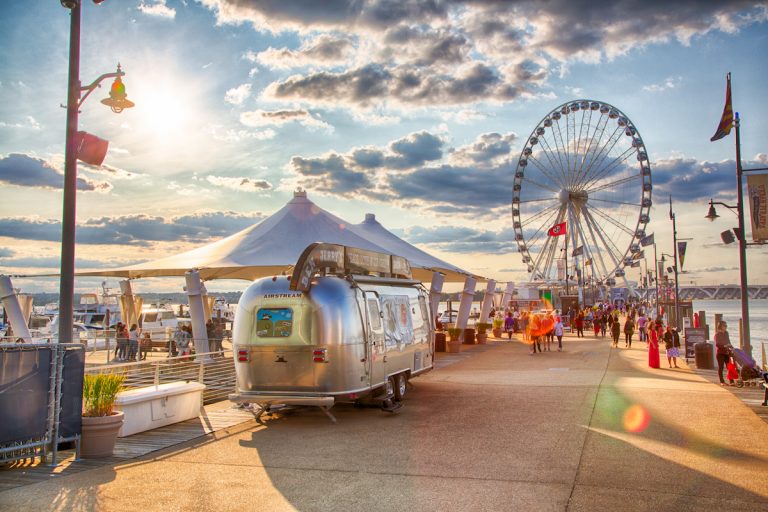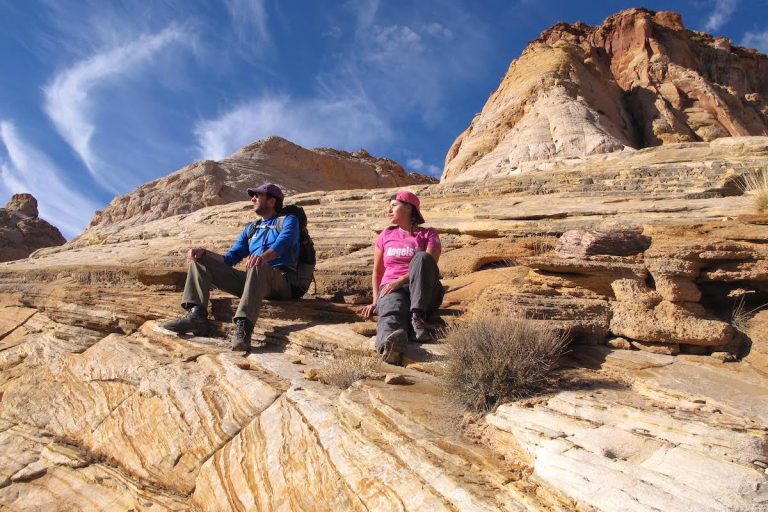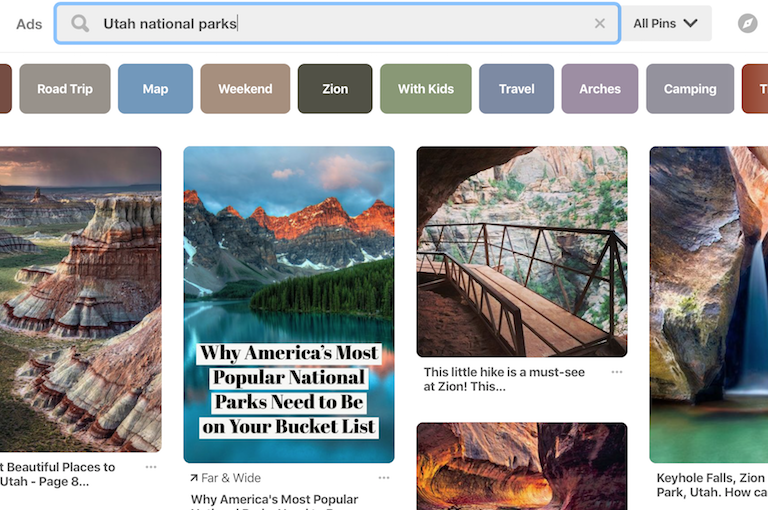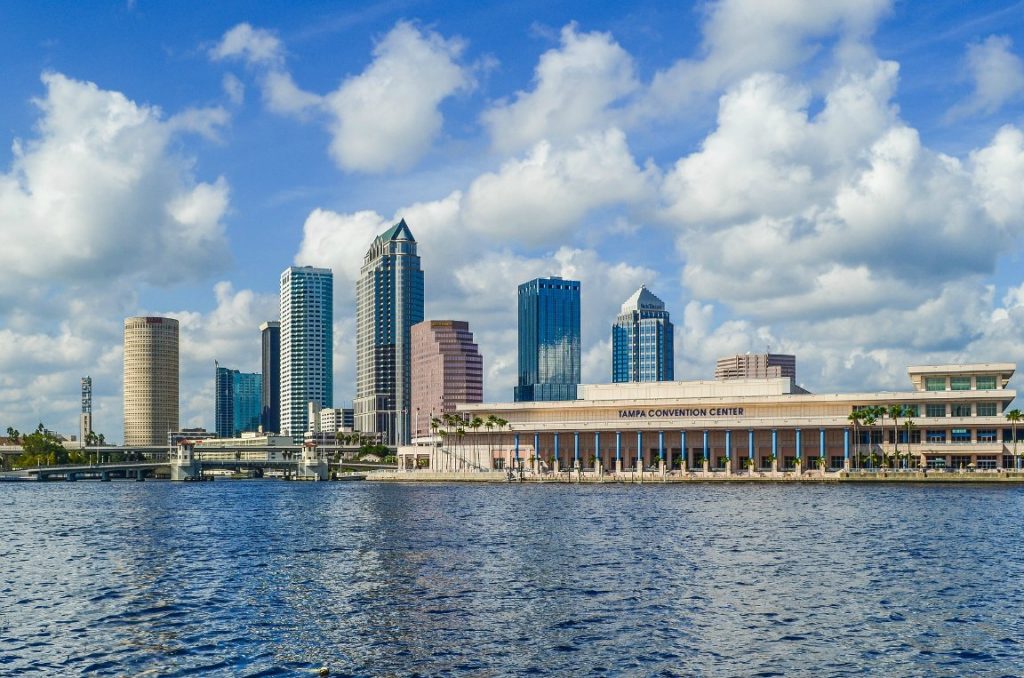
Planning Your RV Trip To The City
Like any RV adventure, you should always start with a plan. In addition to the typical questions — like how long will you travel, what activities will you do, and what meals you want to eat — there are additional considerations for RVing in cities.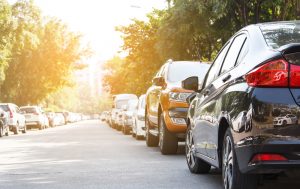


How To Find RV Campsites Near The City
Urban Campgrounds
How much it costs to camp in a city depends on how close you stay to the city center and what amenities you want. As I already mentioned, RV parks in or near large cities are likely to cost you more money, but will give you easy access to public transit and must-see sights. Of course, close proximity to a city can also mean more noise and traffic congestion — something to bear in mind when choosing between campground locations.Here are some examples of popular RV parks close to major cities:
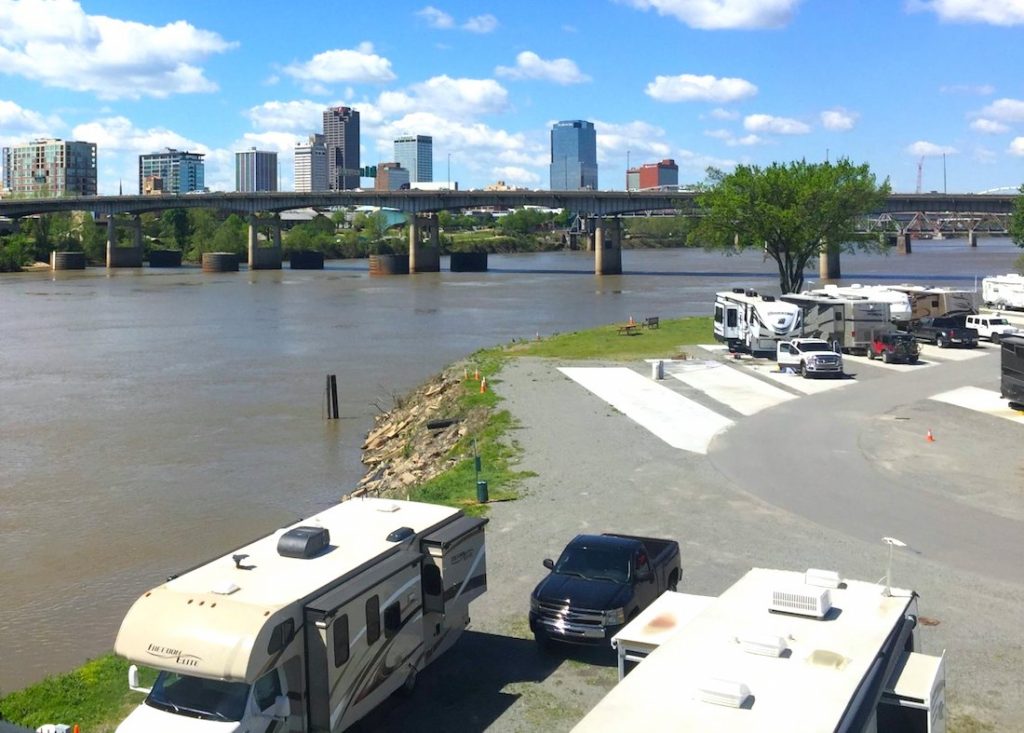


- Mission Bay RV Resort in San Diego, CA: Surrounded by Mission Bay and just a few minutes from tons of popular attractions.
- Liberty Harbor RV Park in Jersey City, NJ: The closest RV park to NYC, this RV park even has views of the Statue of Liberty and Ellis Island.
- Greenbelt Park in Greenbelt, Maryland: 174 campsites located just 12 miles from Washington, D.C.
- Jantzen Beach RV Park in Portland, OR: Located on the Columbia River with a view of Mount Hood, this park is a 15-minute drive from downtown Portland.
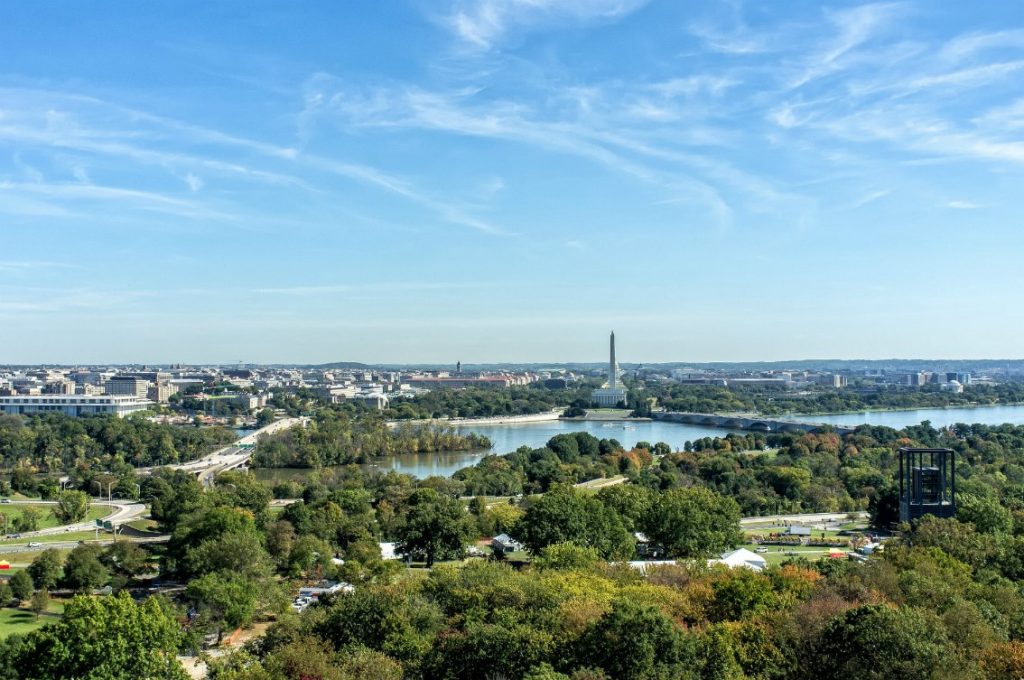


Boondocking In The City
Another option is (legal) boondocking — camping without hookups. A lot of visitor centers (like the one Savannah, GA) allow RVers to park their RVs overnight in their parking lots. So do convention centers — Less Junk, More Journey found the boondocking at McCormick Place in Chicago to be an awesome option right in the heart of the city. It’s always a good idea to call ahead to confirm that boondocking is allowed. Also check out Boondockers Welcome, a site that lists free overnight RV parking on private property. It’s a great way to save money — and maybe even make some local friends.Getting Around The City


 It’s not a good idea to drive around the city in an RV. That might seem obvious but I see people do it all the time. RVs are often large and bulky and city streets can be narrow and congested. There are some exceptions: A Class B van or a small Class C can maneuver around city streets better than a Class A or fifth-wheel. A better option for getting around the city is to use a car or public transportation. RVer Porter Palmer and her husband William Trinkle like to take public transportation into the city. She said that they look for RV parks near train stations or ones that offer a shuttle option. Once in the city, consider taking a trolley tour. Many cities offer a “hop on, hop off” option in which you get a one-day or multi-day pass and can explore various stops at your leisure. This is a great way to see the lay of the land. My husband and I took trolley tours around Nashville, Tennessee and San Diego, California, and loved the flexibility that they provided.
It’s not a good idea to drive around the city in an RV. That might seem obvious but I see people do it all the time. RVs are often large and bulky and city streets can be narrow and congested. There are some exceptions: A Class B van or a small Class C can maneuver around city streets better than a Class A or fifth-wheel. A better option for getting around the city is to use a car or public transportation. RVer Porter Palmer and her husband William Trinkle like to take public transportation into the city. She said that they look for RV parks near train stations or ones that offer a shuttle option. Once in the city, consider taking a trolley tour. Many cities offer a “hop on, hop off” option in which you get a one-day or multi-day pass and can explore various stops at your leisure. This is a great way to see the lay of the land. My husband and I took trolley tours around Nashville, Tennessee and San Diego, California, and loved the flexibility that they provided.Cost-Saving Ideas For Urban Campers
One perk of traveling by RV is that you can offset the expensive costs of city travel. RVing is traditionally less expensive than other forms of travel because you save money on airfare, hotels and dining out. Some RV parks offer discounts for stays of one week or more, making longer trips even more affordable in comparison.


Don’t Skip The City
The next time you’re trying to decide between an RV vacation or a trip to the city, consider combining the two. RV travel can be a cost-effective and fun way to explore a new or favorite city. So long as you do a bit of research and be smart about driving, there’s no reason to be city-shy!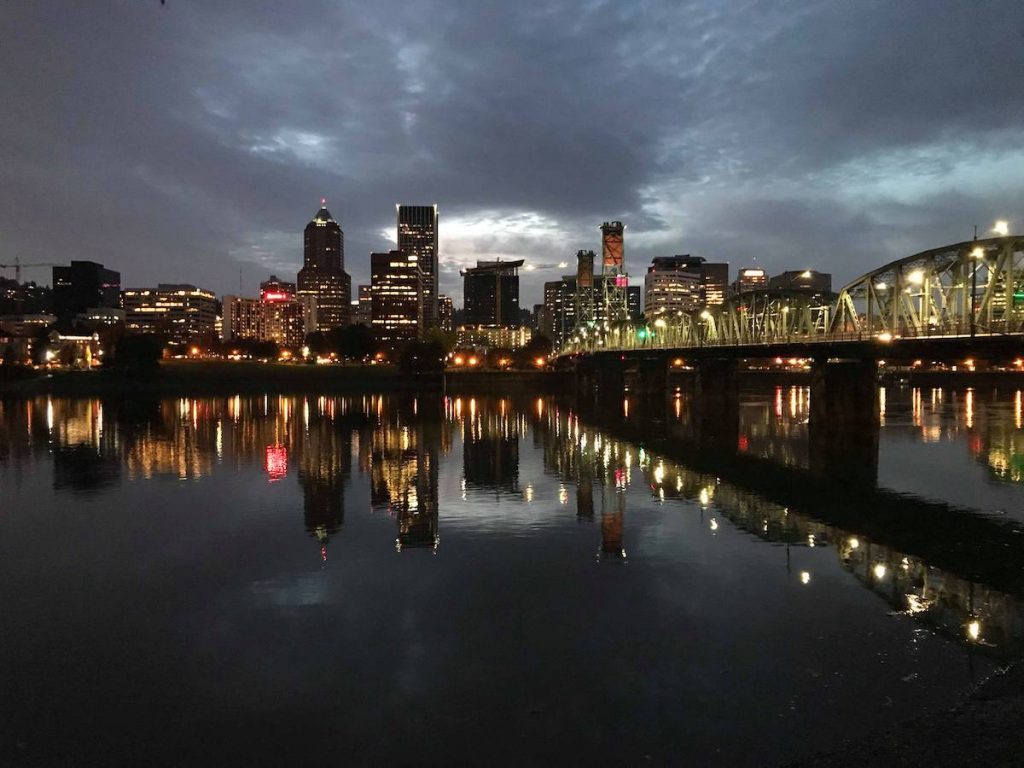


Want to take an RV trip to the city but don’t have a rig of your own? Campanda has an awesome selection of RVs, including compact models that can maneuver around those busy city streets. Click the link below to find an RV for rent near you.
